
Chris Vermaak sent this video to Latest Sightings, which he filmed in the Pilanesberg National Park, South Africa
Trade-off
As the world’s fastest land mammal, capable of speeds exceeding 100 km/h, cheetahs have sacrificed bulk strength for raw speed. Unfortunately, this trade-off has its consequences.
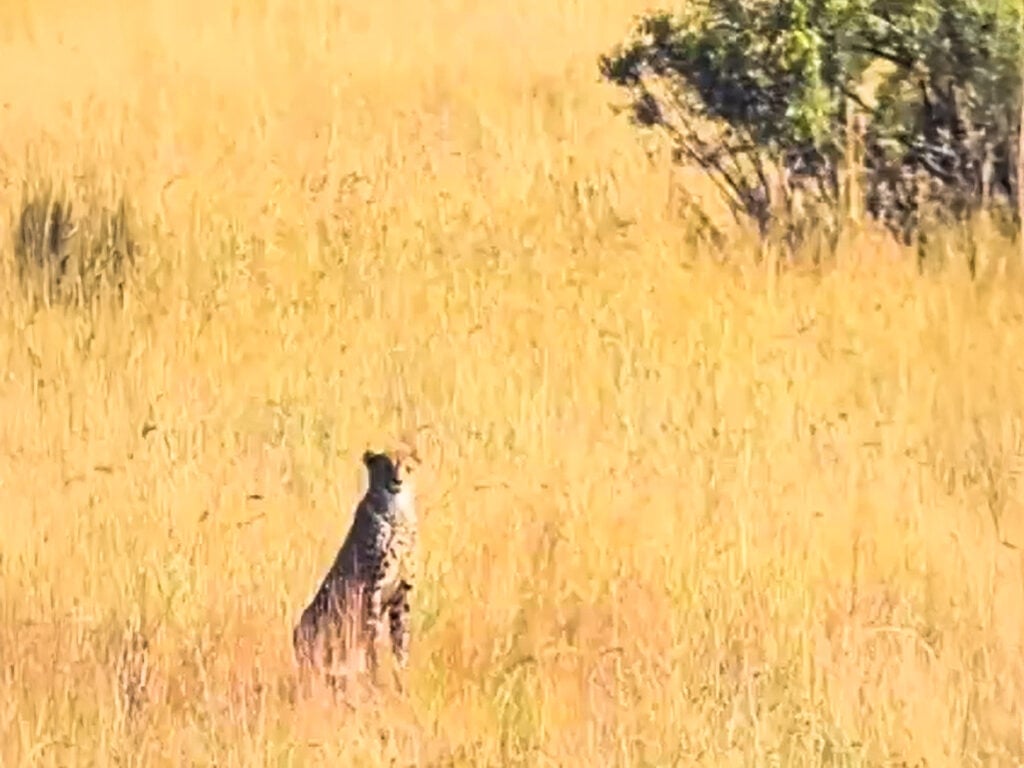
As Chris’s video begins, we see an adult male cheetah standing in the long winter grass.
Built for speed
Then, we watch as the spotted predator stalks through the waving grass, his lithe body rolling with every step.
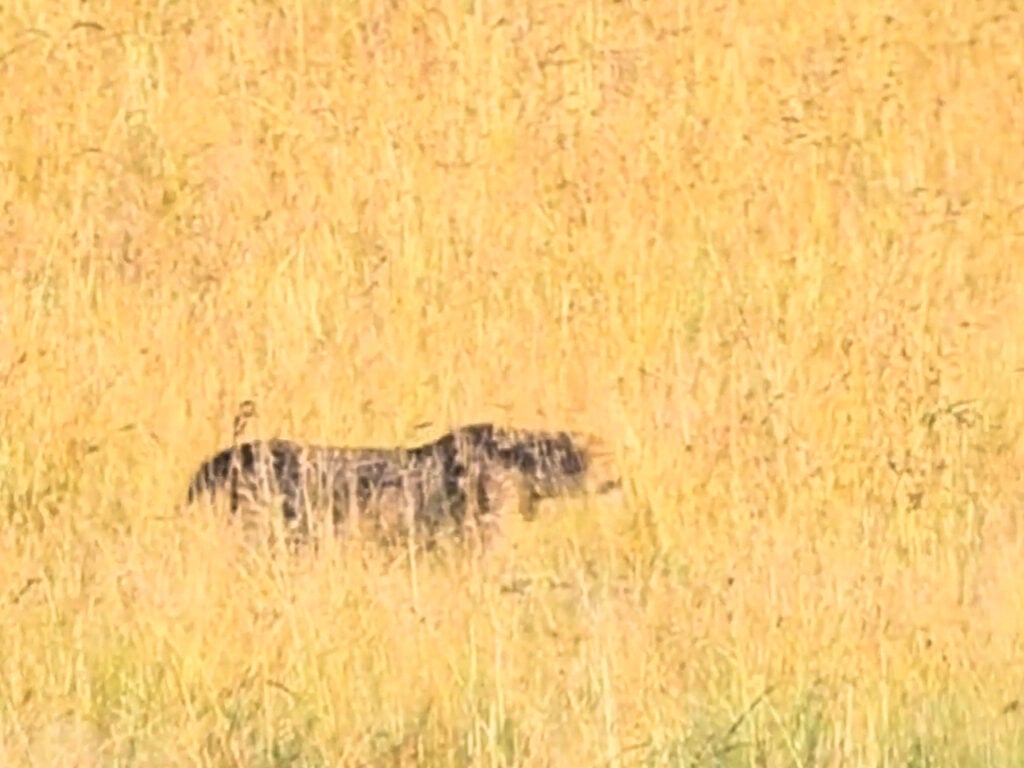
Cheetahs have evolved for speed. They are slightly built with a flexible spine for speed, rigid paws with semi-retractable claws for traction and a long, counter-balancing tail for agility.
Brothers-in-arms
In the next scene, we see the cheetah has joined his brother. Male cheetahs often form small alliances to improve their hunting success and protect larger territories.
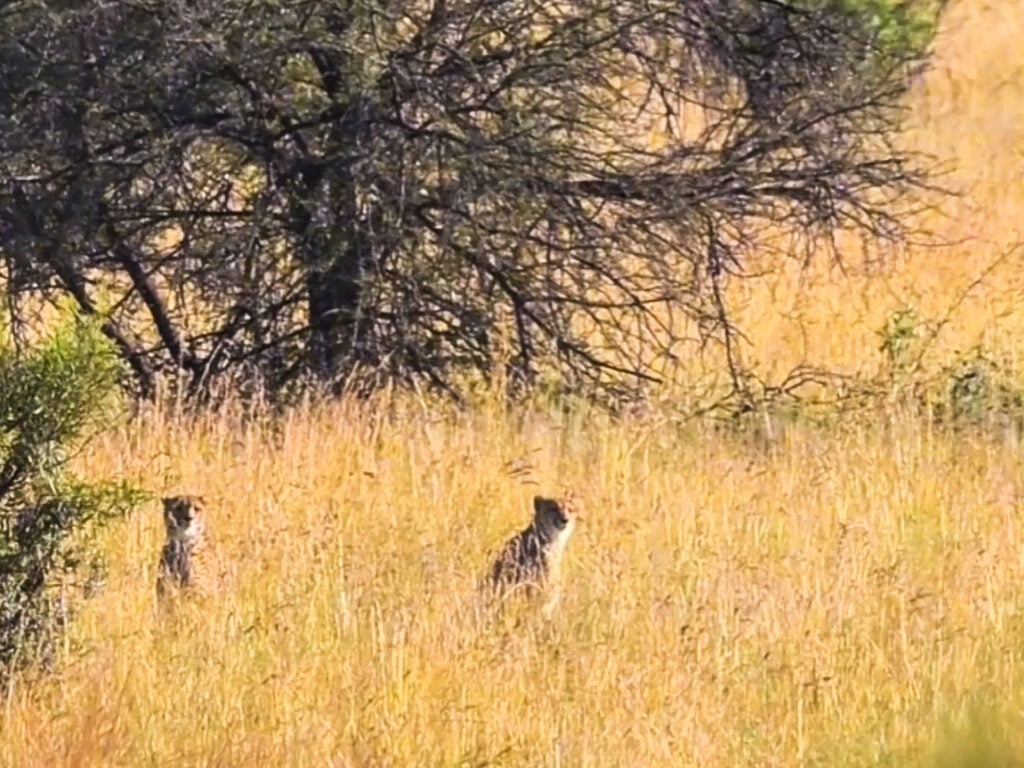
Cheetahs are diurnal hunters, a practice that helps them reduce the chance of encounters with larger, nocturnal predators. And, by their alert postures, we can tell they are on the hunt.
Grazing zebras
A short distance away, a small family of zebras graze, blissfully unaware of the predators’ presence.
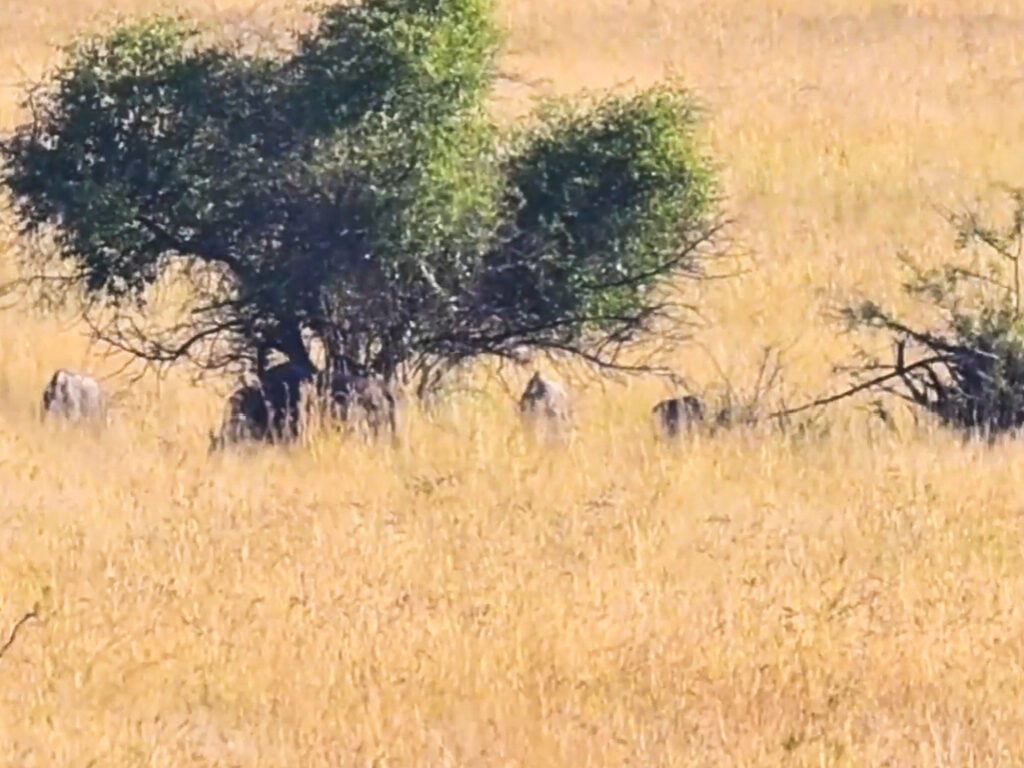
The herd is made up of a stallion, three mares and a foal.
Sights set
As the cheetah duo spot the herd, they begin their approach. In the tall grass, their camouflaged coats hide them from view, allowing them to get within striking distance.
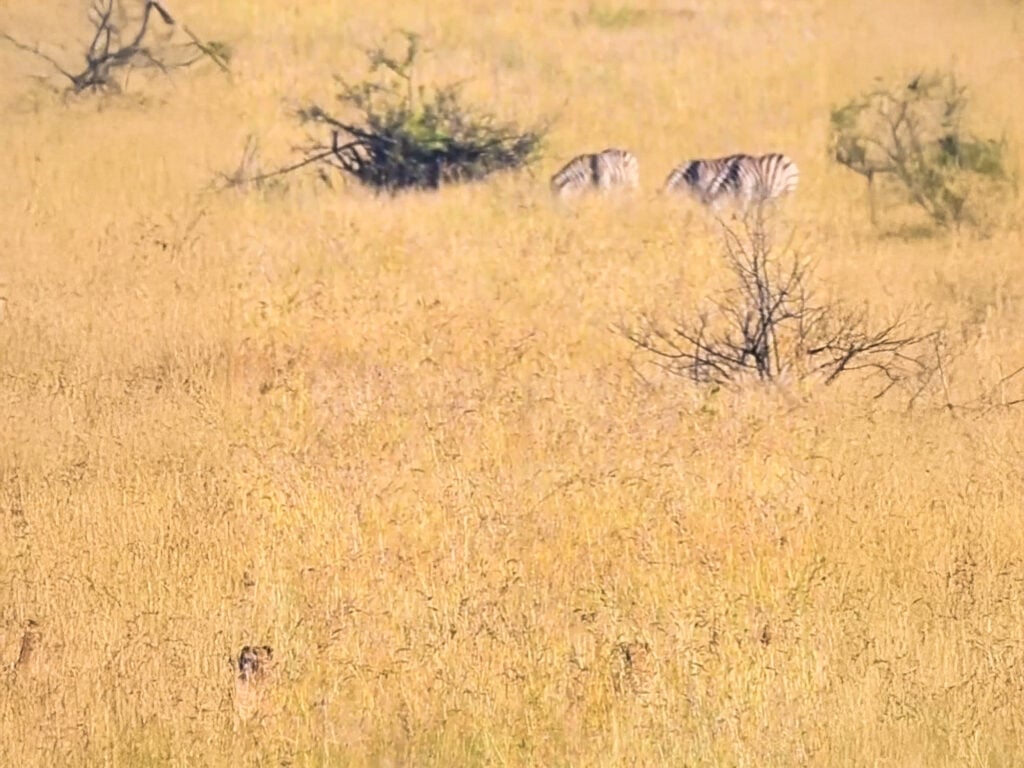
For all their speed, cheetahs lack stamina. This means they must get as close as possible before launching their attack.
Target locked in
After managing to approach undetected, the cheetahs explode into action. Capable of accelerating to 100 km/h in three seconds, they soon close the gap between them and their prey.
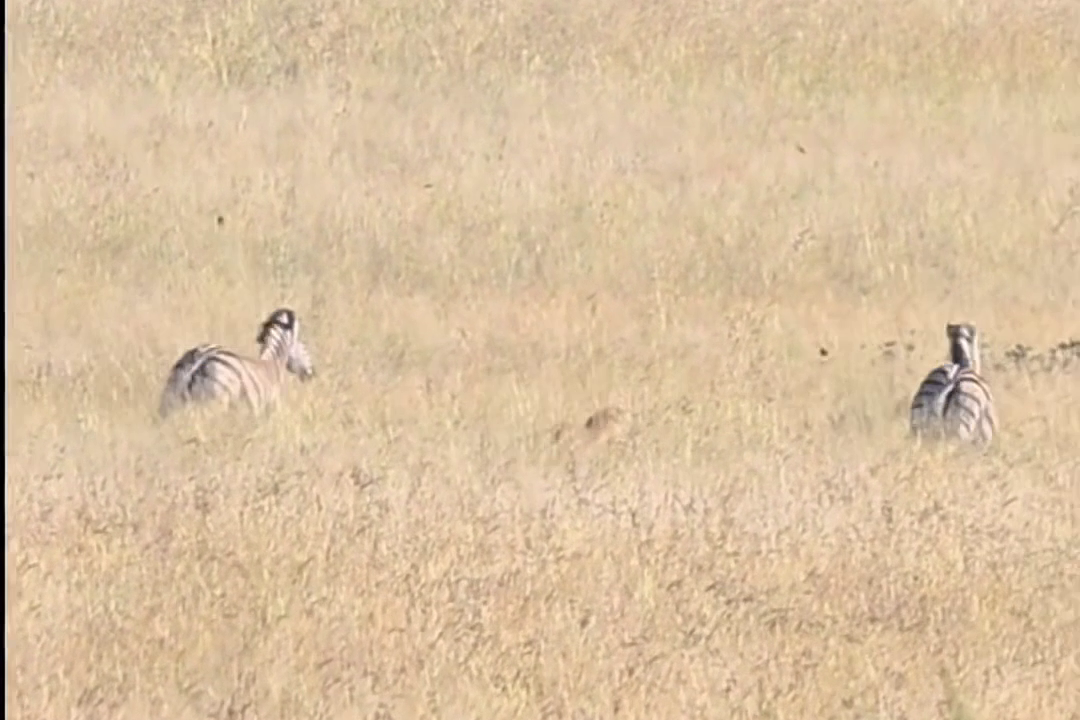
Streaking through the grass, it becomes apparent that they are targeting the foal. In seconds, they are upon it and pull it to the ground.
About turn
As the herd flees, they do something unexpected, abruptly changing direction and running back towards Chris.
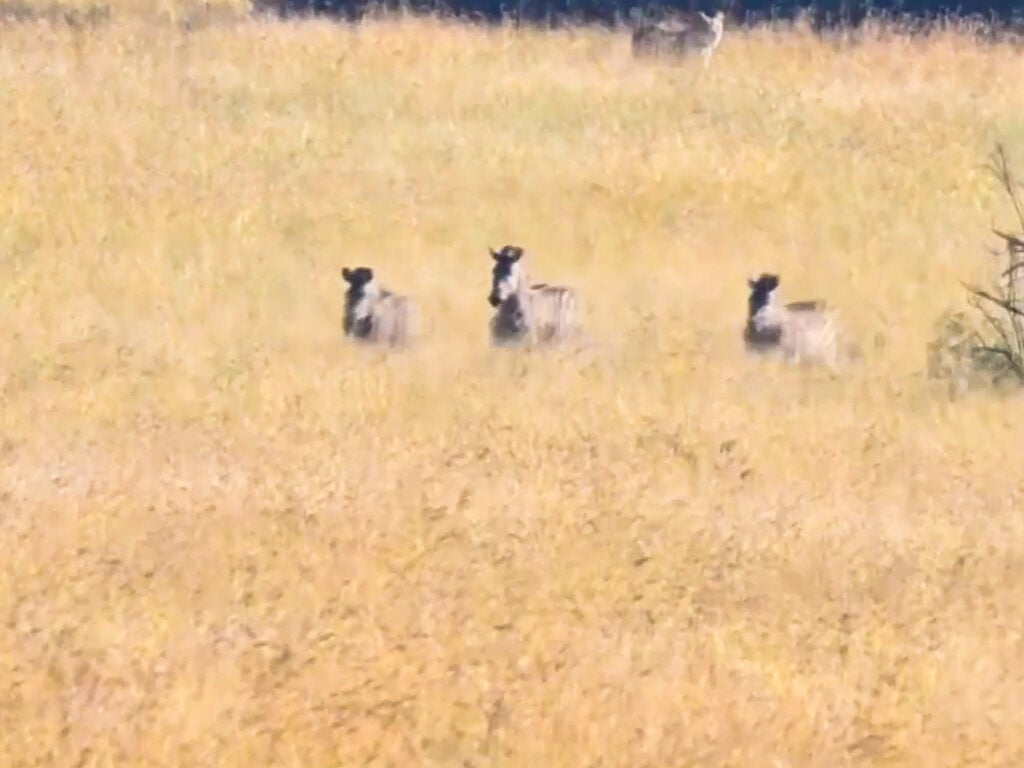
The reason for their sudden u-turn becomes apparent. As a result of the commotion of the chase, a lioness has come to investigate.
Other plans
As the lioness watches the herd flee, it is unclear what has become of the cheetahs and the foal.
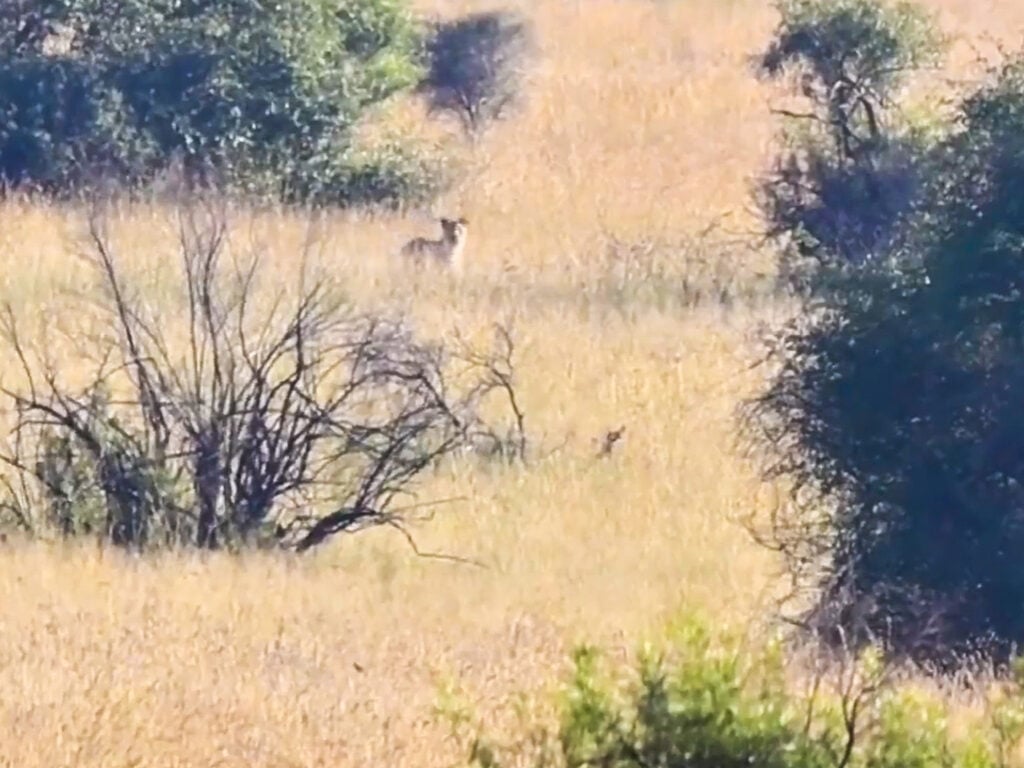
The lion’s keen senses soon point it in the right direction. Its destination: the sight of the cheetah kill.
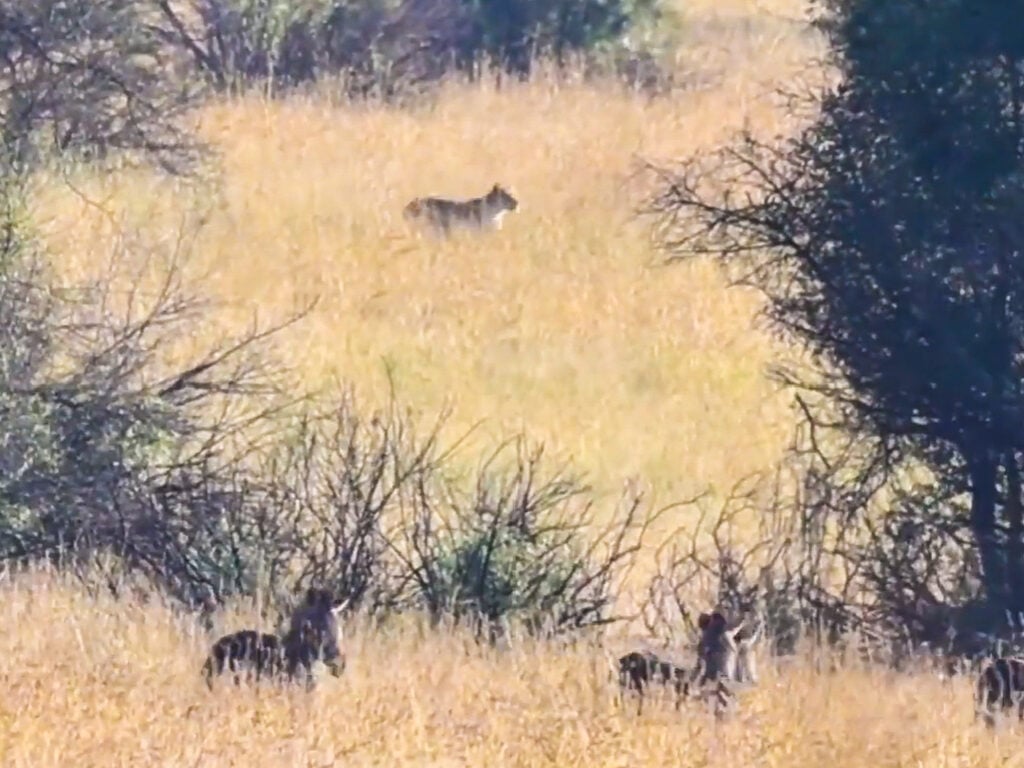
Get our Best Sightings as they Come in
Resigned to its fate
Fortunately, the cheetah has also spotted the lioness. Unfortunately, there is nothing he can do.
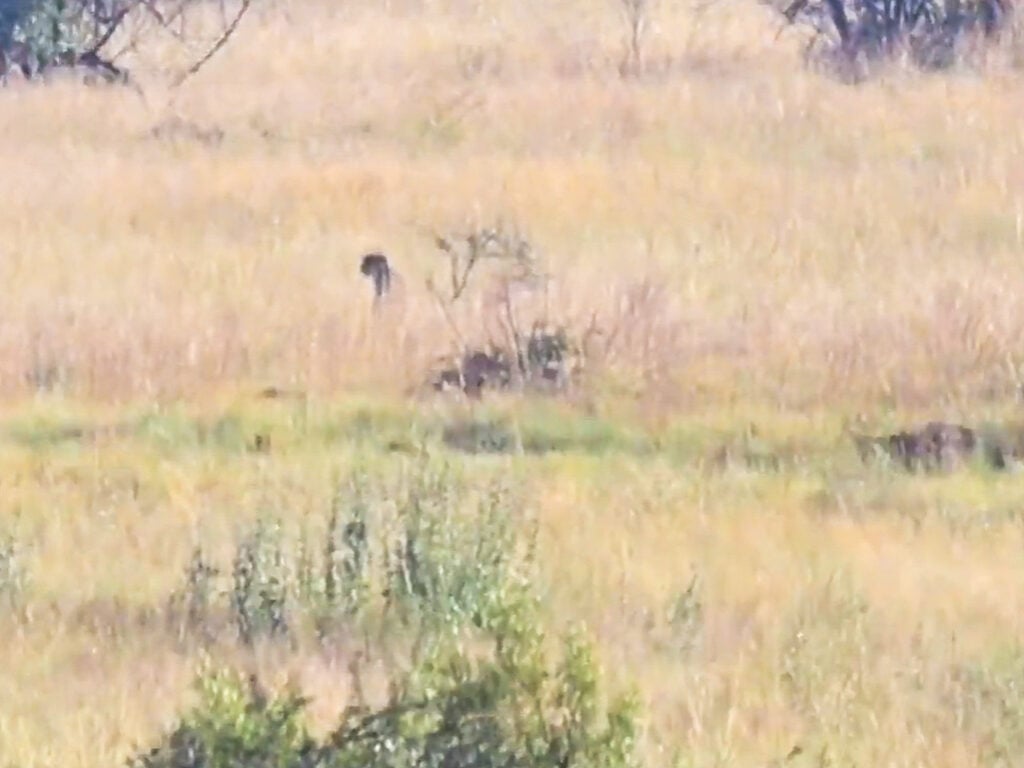
As the lion approaches, the out-of-breath cheetah is forced to relinquish its valued prize.
A delicate balance
Cheetahs are successful in about 50% of their attempted hunts. This figure is higher than that of both lions (27-34%) and leopards (14-38%).
Due to their smaller stature and timid nature, they are the most likely to lose their prey to other predators. Between 10-15% of their kills are lost this way.
They simply cannot risk an injury due to conflict with a more powerful predator. With a host of threats to the survival of the species, we hope the pair will reap the full benefits of their next hunt.
